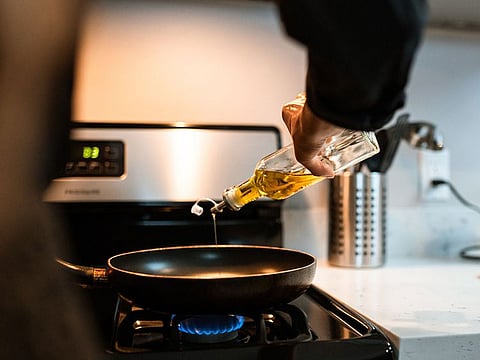Pakistan: Citizens frustrated at gas outages in Ramadan
Company promises action to resolve issue that’s hitting households in several cities

Islamabad: Citizens in several cities across Pakistan are grappling with severe gas outages, causing inconvenience, especially during Sehri and Iftar times during the holy month.
Residents in several neighbourhoods of Karachi, Quetta, Islamabad and Rawalpindi reported gas shortages lasting for several hours on the first day of Ramadan and said that low gas pressure has made cooking impossible even when gas is available.
Some enraged citizens in the Golimar area of the city of Karachi took to the streets on Thursday to protest against gas supply disruptions. The protesters blocked a main road, burned tyres and asked the gas companies and the government to ensure continuous gas supply.
“It was the first Sehri and there was no gas to prepare meals for Iftar,” said a resident of Karachi’s North Nazimabad neighbourhood. “Ramadan is a time when families come together and share meals. But now we have to wait for hours for the gas and then rush to cook before it goes out again. It is really frustrating” said Rabia Batool, a resident of Karachi, told Gulf News.
Pakistan’s two gas utilities Sui Northern Gas Pipelines Limited (SNGPL) and Sui Southern Gas Company (SSGC) have cautioned that gas outages are expected during Ramadan due to an annual decrease of 8 to 10 per cent in the country’s gas reservoirs.
SSGC has announced a “gas profiling” schedule which will run from 8am to 2:30pm during which gas pressure will remain low. However, the company assured consumers that they will be provided with gas during Sehr and Iftar time. SNGPL has also announced that domestic consumers will be ensured gas supply with full pressure, particularly between 2:30am to 6am and 4pm to 9pm. The company promised action to resolve the issue of gas shortage.
Many parts of Quetta, Rawalpindi and Islamabad also remained without the gas supply on the first day of Ramadan. “This sudden gas outage during Ramadan does not make sense. We have kids and elderly people in the house who are not fasting. How are we supposed to prepare meals for them if gas is only available at Sehr and Iftar time?” asked Saadia Khan, a resident of Rawalpindi.
Pakistan is one of the most gas-intensive countries in the world where natural gas was made available to households at dirt-cheap prices for years. The country is now witnessing gas shortages and load shedding, forcing Pakistan to explore indigenous resources. Feroza Rahber, a resident of Orangi Town, told Gulf News that there has been no gas in her neighbourhood near Qatar Hospital for nearly six months now. “There is no gas pressure at all. We have permanently shifted to using gas cylinders now which are both expensive and risky.”
Sign up for the Daily Briefing
Get the latest news and updates straight to your inbox



